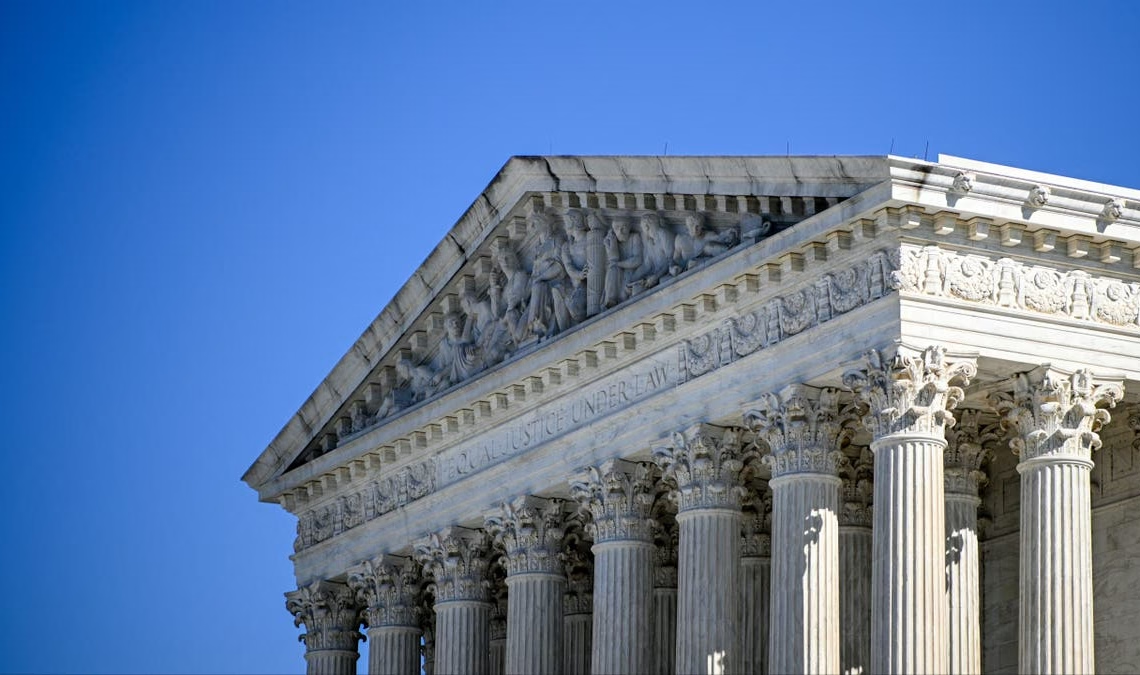The U.S. Supreme Court issued several major decisions over the course of 2024.
Its rulings include those that have pushed back on the Biden administration’s attempted change of Title IX protections for transgender students, reversed a 40-year precedent that had supported what conservatives have condemned as the administrative state in Washington, and considered the constitutionality of Republican-controlled state efforts to curtail what they define as liberal Silicon Valley biases online.
The high court also ruled on presidential immunity at a consequential time for current President-elect Trump during the 2024 election – and sided with a Jan. 6 defendant who fought a federal obstruction charge.
Here are the top cases considered by the justices over the past year.
Department of Education v. Louisiana
The Supreme Court on Aug. 16, 2024, kept preliminary injunctions preventing the Biden-Harris administration from implementing a new rule that widened the definition of sex discrimination under Title IX to include sexual orientation and gender identity, while litigation over the rule continues.
After the Fifth and Sixth Circuit Courts of Appeal denied the administration’s request to put a stay on the injunctions, the Department of Education turned to the Supreme Court, arguing that some parts of the rule should be able to take effect. The Supreme Court rejected their request.
“Importantly, all Members of the Court today accept that the plaintiffs were entitled to preliminary injunctive relief as to three provisions of the rule, including the central provision that newly defines sex discrimination to include discrimination on the basis of sexual orientation and gender identity,” the court’s unsigned opinion said, concluding that the Biden administration had not “adequately identified which particular provisions, if any, are sufficiently independent of the enjoined definitional provision and thus might be able to remain in effect.”
The U.S. Supreme Court is seen in Washington, D.C., on Feb. 5, 2024. (Mandel Ngan/AFP via Getty Images)
In April, the Department of Education issued the new rule implementing Title IX of the Education Amendments of 1972, arguing that expanding the definition of discrimination to include “sexual orientation and gender identity” would protect LGBTQ students. Louisiana led several states in suing the DOE, contending the new rule “violates students’ and employees’ rights to bodily privacy and safety.”
Title IX implemented the…
Click Here to Read the Full Original Article at FOX News : Politics…

